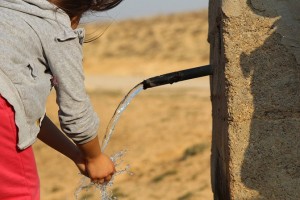 Water is not only life-generating and life-sustaining, but also impacts hugely on the economic status and growth of every country. Various reports, including the recently published World Water Development Report, have mentioned that water is closely tied to economic and job growth across the globe.
Water is not only life-generating and life-sustaining, but also impacts hugely on the economic status and growth of every country. Various reports, including the recently published World Water Development Report, have mentioned that water is closely tied to economic and job growth across the globe.
THIs shows us that we need not just save water for our own drinking purposes, but we also need to look after the quantity and quality of the water as a means of driving job and economic growth; currently three out of four jobs globally are tied to the water industry or dependent on it in some way or the other.
Water as a Driver of Economic Growth
According to the International Renewable Energy Agency (IRENA), approximately 7.7 million individuals were employed in the renewable energy sector in 2014, and this figure will climb massively as the transition to a greener economy gets more widespread, as water plays a central role and will lead to millions of more jobs worldwide.
According to the U.S. Department of Commerce’s Bureau of Economic Analysis, every job created in the water sector also creates 3.68 indirect jobs in the national economy, and a study in Latin America found that a US$1 billion investment in the water supply and sanitation network infrastructure would directly create an additional 100 000 jobs. Add to this the indirect jobs created and it is clear that an investment of US$1 billion will create almost half a million new jobs.
The need for investment into aging and inefficient infrastructure is a huge driver for employment in the water and waste management sector globally as most countries are struggling with increased populations that are using the same infrastructure that was built centuries ago and which is causing massive leakages (estimated to be around 30% of global water withdrawals), toxins leaking into the drinking water, and poor agricultural productivity.
Infrastructure is not the only thing driving the economy and job growth though; climate change is also a huge reason for the creation of new jobs as we look to various non-conventional sources of water such as rainwater harvesting, recycled wastewater and urban runoff to supplement the freshwater supplies required to service the estimated 9 billion inhabitants of Planet Earth in the near future. Investigating, researching and implementing these new sources will create many new job opportunities in research and technology development as well as in the implementation of the results.
Purchase water cooler or rent water dispenser from Living-Water.





